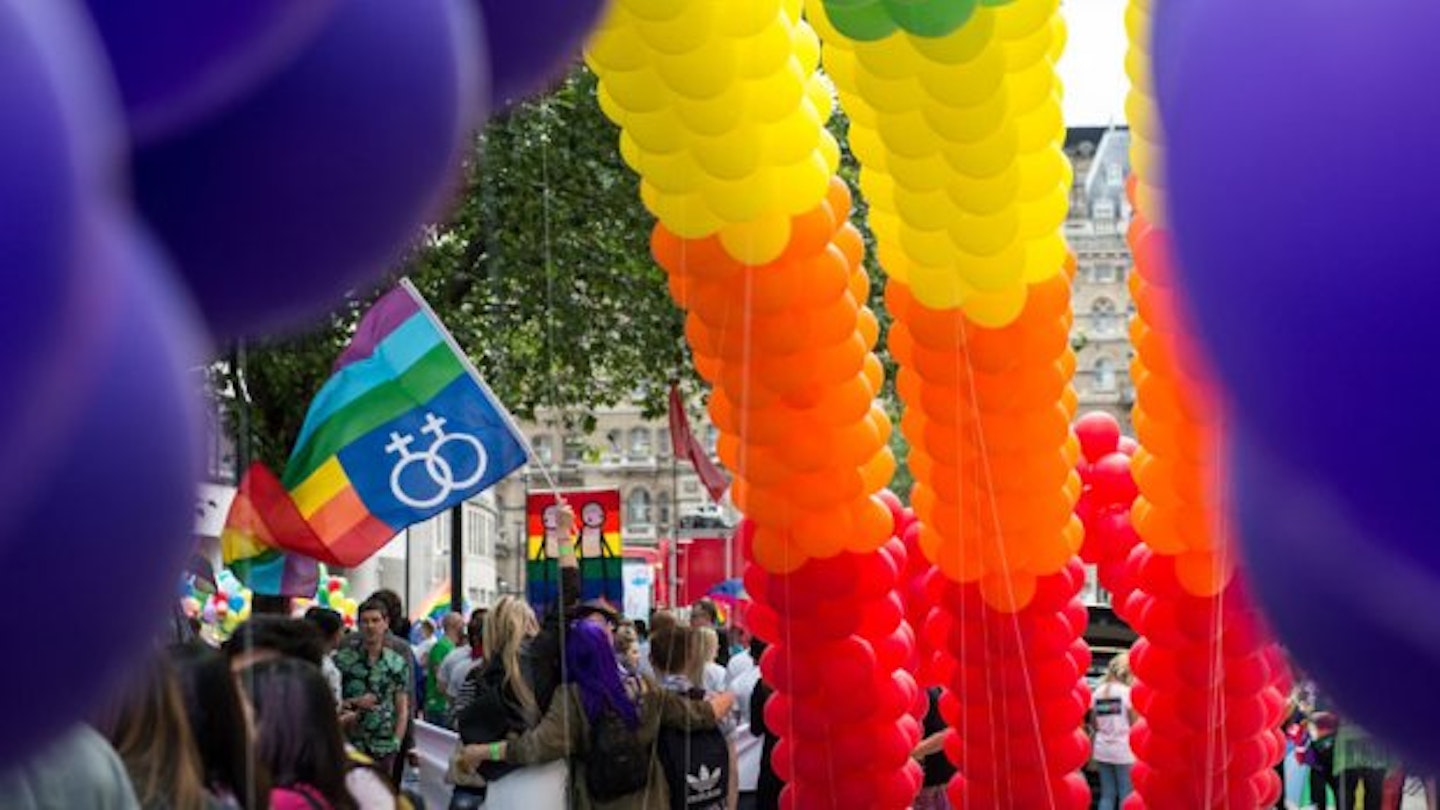Pride isn’t just glitter, strawpedoed WKDs and toilet queues. It’s a worldwide, summertime commemoration of the anniversary of 1969’s Stonewall Inn riots, when LGBT New Yorkers stood up to insist they would no longer be arrested simply for hanging out at one of the few places in Manhattan open to their kind. Their actions sparked a movement, and still, to this day, people march, or at least parade, in support of this movement.
But it’s not just people who enjoy the joviality and pride of participating in this both flamboyant and sincere protest, or public servants like firefighters, teachers or nurses and doctors from the NHS, or unions representing those public servants, or kink groups, or charities, or international advocacy groups…it’s corporations.
This year, Tesco is the 'headline sponsor' of Pride. 'Gold sponsors' are Barclays, Amazon Music, Budweiser and a law firm called CMS along with the Mayor of London’s office. Other partners this year include Facebook, PWC, WeWork, ASOS, Arcadia and Foxtons, and many, many more.
Each of these companies has contributed money into Pride in London, and in return, they get a place on the parade. This sort of sponsorship happens at pretty much every mainstream pride event in the world. It costs way less for, say, the NHS to get a space in British parades, but still.
Though LGBT people’s varied backgrounds and lived experiences differ vastly enough for us to have a whole jumble of politics, our struggle is objectively and obviously political in many ways. In the past few years, we’ve seen: the rise of far-right populism, an uptick in homophobic attacks since the EU Referendum, a mass murder of 49 LGBT people in Orlando, perpetrated by a man who was only a ‘lone wolf’. On top of that, this Pride month, the same Conservative party that used to slap itself on the back for providing happy-in-love same-sex couples with the right to legal marriage, is still in a tenuous (and slightly pointless) confidence and supply deal with the help of the legendarily homophobic DUP.
With Pride becoming much more of a political protest, is it really ok for corporations to have such a huge presence?
Perhaps a more politicised Pride would put off sponsors. But it’s not just being supportive - even in the most symbolic ways - to LGBT people that attracts corporations’ money and banners these days, it's the very act of protest. Protests are so cool that Pepsi did THAT advert with Kendall Jenner. With both LGBT rights and the act of protest being seen as marketable, by appearing at Pride, corporations have got double the kudos for aligning their branding with a parade witnessed by hundreds of thousands of people. But what do LGBT people get out of this involvement? And what of the companies doing pro-Pride stunts ahead of the big day, like Skittles going white in order to ‘give the rainbow back’ to LGBT people, or ‘GAYtms’ being set up, literally plonking rainbows over ATMs, or Smirnoff releasing limited edition ‘Love Wins’ bottles?
Jack Monroe, non-binary activist and food writer, agrees that adding a flag to your corporate logo isn't enough_:_ 'I was walking through Soho last week and I noticed Nando’s chicken had the colours of the Pride flag on it seemed like a mismatch. I’m sure they do great LGBT work but if they do we don’t know and hear about it. There’s something crass about multinational corporations co-opting years of hard-won gay rights to sell chicken. It’s like, hang on, you’ve got to do more than make your chicken a colour of a pride flag. What rights to LGBT colleagues have in your corporation, do you partner with any companies in your supply chain that treat LGBT people unfavourably. They’ve got to do more than stick a flag up in the window and say ‘hey, come and spend your money here’ We’ve got to hold organisations to account and there needs to be more scrutiny from the Pride Committee (the organisers of Pride In London) of who they’re inviting. You can’t just undo years of blatant discrimination against the LGBT community with a five grand cheque to join the march.
'True commitment to equality would be to make sure LGBTQ people’s voices were heard at the top of the company rather than preached to in our own spaces. Instead of driving buses into our spaces, to hold court up front, invite us into your spaces. Have LGBTQ people, especially working class people and people of colour on your committees and boards, recognise our work and promote us accordingly, hire us, consult us, and THEN you get your bus.'
LGBT people have long garnered a reputation for having a bit of extra money, based on the misconception that they won’t have kids, or that workplace discrimination won’t negatively affect them so long as they bring the strength and tenacity it takes to come out into the office. What is certain, though, is that the sheer number of LGBT people across the country, living out and proud lives, will be noticed by those looking to make some money out of the ‘pink pound’.
There’s always a pot of gold at the end of the rainbow, and corporations know that. And while a lot of Pride wouldn’t be possible in its current format without the investment of corporations, these companies are getting a lot of great PR out of their ties with the LGBT community. And, to paraphrase Janet Jackson, a gay icon herself, it’s about time all of us, LGBT people and allies, asked of these corporations: ‘What have you done for US lately?’
Like this? You might also be interested in:
Follow Sophie on Twitter @sophwilkinson
